1. Letting Weeds Take Over
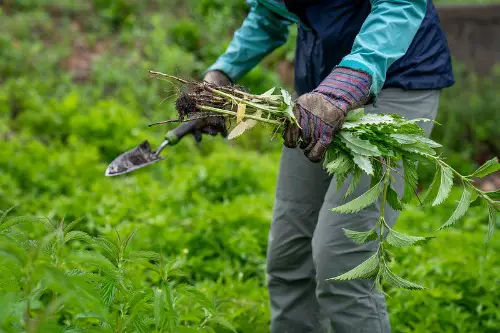
When your garden looks like a wild weed sanctuary, your neighbors notice. Weeds don’t just look messy; they also spread quickly and invade nearby lawns and flowerbeds. Many weeds release seeds that travel by wind, so your neighbor’s perfect lawn might get a surprise dandelion invasion. It’s not just about aesthetics—unchecked weeds create more work for everyone around you.
Even if you think your garden is “natural,” neglecting basic weed control can come across as lazy. A few minutes of pulling or mulching each week can prevent bigger issues down the road. Your neighbors will appreciate that you care about how your yard affects theirs. In gardening, tidiness often equals respect for the people next door.
2. Ignoring Overgrown Hedges
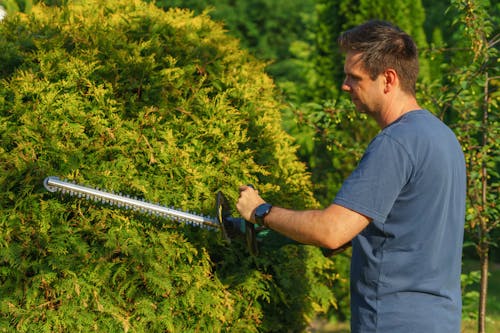
Hedges and shrubs can easily grow wild if left unchecked. When they spill over into sidewalks, driveways, or even neighbors’ yards, it sends a message that you’re not paying attention. Overgrown hedges can also block visibility on the street, which is a safety issue. That’s the kind of annoyance that makes neighbors grumble under their breath.
Regular trimming makes your property look well-kept and prevents headaches for others. It also keeps pests from making a cozy home in tangled branches. Think of hedges as part of your home’s handshake—neat and welcoming says you care, while wild and unkempt says you don’t. Your neighbors will absolutely notice the difference.
3. Watering at the Wrong Times
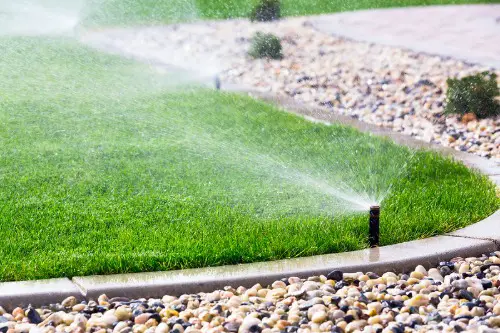
Watering your garden at high noon may seem harmless, but it wastes water. The heat causes evaporation, meaning less moisture reaches your plants and more runs off into nearby yards. Overspray can also soak sidewalks, fences, or even a neighbor’s freshly washed car. It’s a small thing that can feel surprisingly inconsiderate.
The best time to water is early morning or evening when the sun is low. This not only conserves water but also gives plants the hydration they need to thrive. Neighbors who garden will notice your good habits and quietly respect them. Everyone appreciates someone who conserves resources and avoids unnecessary mess.
4. Planting Invasive Species

It’s easy to fall in love with fast-growing plants, but some are invasive. Bamboo, mint, or English ivy can quickly escape your boundaries and choke out native species. Once they spread, they’re notoriously difficult to remove, and they don’t respect property lines. What starts as your “pretty addition” can become your neighbor’s nightmare.
Responsible gardeners do a little homework before planting. Choosing non-invasive plants shows care not just for your own garden but for the larger ecosystem. Neighbors may not say it out loud, but they’ll thank you for avoiding a long-term battle with stubborn roots. A little research now saves everyone future frustration.
5. Leaving Tools Scattered Around
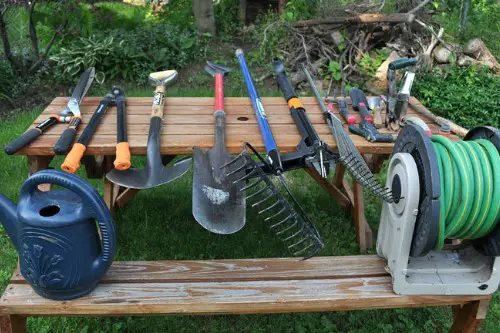
Shovels, hoses, and rakes left lying around don’t just look messy—they’re potential hazards. A hose across the sidewalk could trip a passerby, and sharp tools left out raise safety concerns. Kids and pets are especially vulnerable to accidents in these situations. Neighbors might smile politely, but in their heads, they’re thinking, “Why can’t they put that away?”
Taking five minutes to store tools properly keeps your garden neat and safe. It also signals to your neighbors that you care about appearances and their well-being. Organized gardeners are seen as considerate people. A tidy yard creates a sense of calm, while clutter sends the opposite message.
6. Skipping Lawn Care Altogether
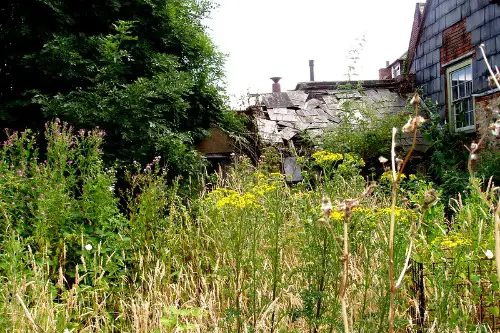
A patchy, unmowed lawn stands out, and not in a good way. Tall grass attracts pests like ticks and mosquitoes, which don’t stay confined to your property. A neglected lawn can also lower the curb appeal of the whole block. That’s something neighbors care about, whether they say it or not.
Regular mowing and occasional fertilizing make a huge difference. You don’t need a golf-course lawn, but basic upkeep matters. A cared-for lawn tells others you’re invested in the neighborhood. Neglecting it feels like ignoring a shared responsibility.
7. Using Harsh Chemicals Excessively

Spraying your garden with strong pesticides might keep pests away, but it comes with side effects. Those chemicals can drift into your neighbor’s yard, affecting their plants, pets, or even kids playing outside. Over time, harsh chemicals also harm pollinators like bees and butterflies, which benefit everyone’s gardens. Neighbors may silently resent you for putting the ecosystem at risk.
Switching to eco-friendly or targeted methods shows responsibility. It keeps your plants healthy without creating unintended harm nearby. Plus, many neighbors value sustainable gardening and appreciate when others do the same. It’s one of those invisible choices that improves community trust.
8. Ignoring Fallen Leaves and Debris
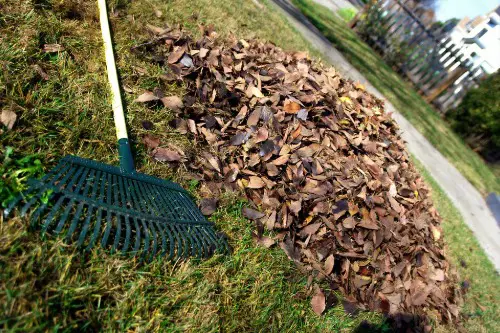
In autumn, fallen leaves can quickly pile up. Leaving them to blow into neighbors’ yards or clog shared gutters creates extra work for everyone else. Wet leaves on sidewalks can also become slippery and dangerous. It’s an easily avoided frustration that tends to stick in people’s minds.
Raking or composting leaves regularly solves the problem. It’s a simple act of care that benefits your garden soil too. Neighbors notice when you’re proactive instead of letting the mess spread. In community living, small courtesies make a big difference.
9. Overcrowding Your Plants
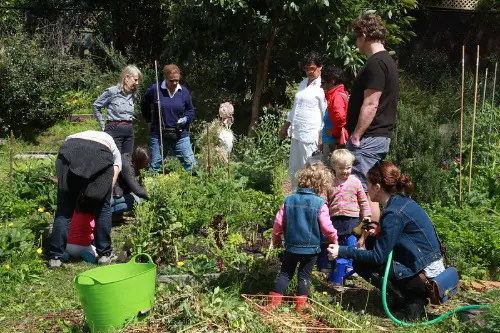
Planting too closely may seem efficient, but it often leads to disease and pests. Overcrowded plants have poor airflow, making them more prone to mildew and fungal issues. As problems spread, they can easily move into nearby yards. Your neighbor’s healthy roses shouldn’t suffer because your tomatoes were too cramped.
Spacing plants properly helps them thrive and reduces maintenance in the long run. It also makes your garden look intentional and well-planned. Neighbors admire a garden that grows with balance rather than chaos. Good planning benefits everyone, not just your backyard.
10. Letting Compost Get Smelly
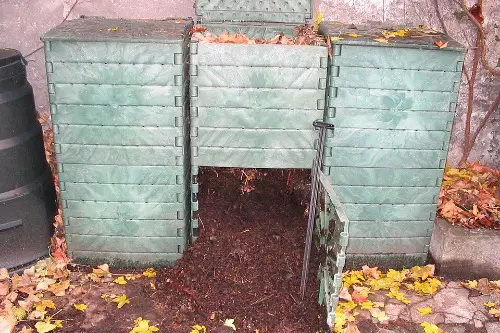
Composting is great for the environment, but when done wrong, it reeks. Piling food scraps without turning or balancing “greens” and “browns” leads to bad odors. Those smells don’t stay in your yard—they drift over fences and through open windows. A sour compost pile is the definition of silently annoying.
Proper composting isn’t complicated. Turning the pile and keeping it balanced prevents unpleasant smells. A well-kept compost pile is almost odorless, and your neighbors will appreciate the care you put into it. Sustainability is great, but courtesy is better.
11. Installing Harsh Lighting

Floodlights or overly bright garden lights may feel secure, but they can ruin your neighbor’s evening. Nobody wants to sit on their patio bathed in your glare. Light pollution also disrupts wildlife like moths and bats, which play key roles in local ecosystems. The constant glow can feel intrusive even if you meant well.
Opting for softer, downward-facing lights solves the problem. Solar path lights or motion-sensor bulbs add safety without overwhelming brightness. Thoughtful lighting creates ambiance for you and peace for your neighbors. When your garden glows instead of glares, everyone’s happier.
12. Ignoring Noise from Garden Tools
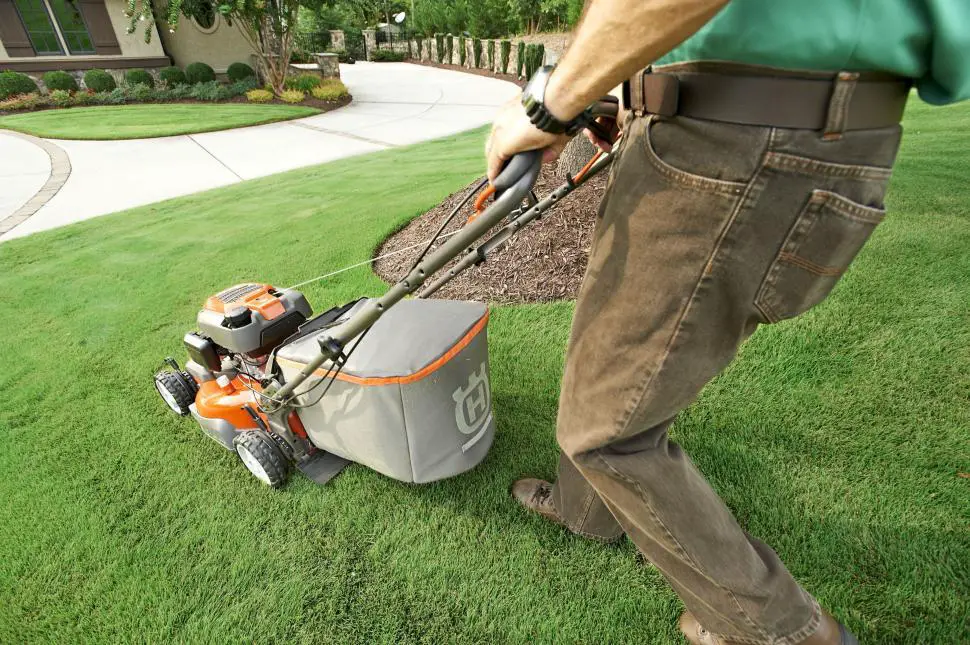
Nothing tests neighborly patience like firing up a leaf blower at 7 a.m. Gas-powered mowers, trimmers, and blowers are loud enough to disrupt sleep, work, or quiet weekends. Noise pollution may not seem like a big deal, but it quickly wears people down. They might not complain, but resentment builds over time.
Respecting noise ordinances or simply waiting until mid-morning makes a huge difference. Quieter electric tools are also becoming widely available. Small adjustments like these show thoughtfulness toward the people living around you. A quieter garden keeps peace in the neighborhood.
This post 12 Garden Mistakes That Make Your Neighbors Hate You in Silence was first published on Greenhouse Black.
